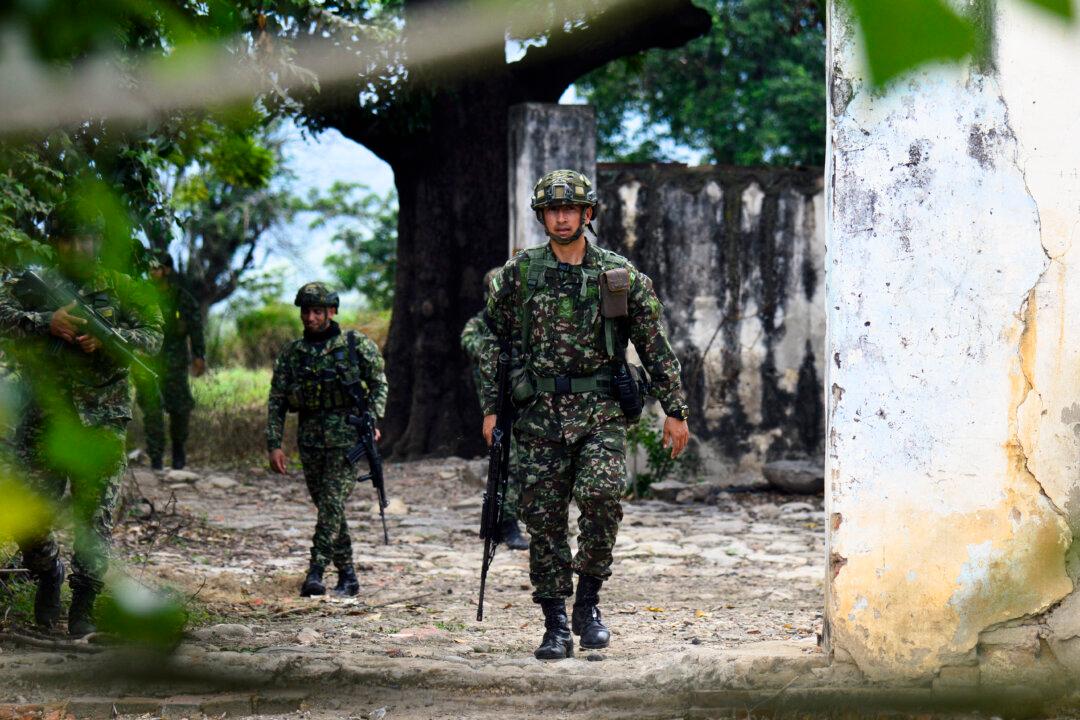In the wake of a meticulous, courageous, and damning policy report by a Canadian think tank, the Chinese Communist Party (CCP) has nowhere to hide.
To undermine the democratic world order, the CCP has blurred the lines between soft and sharp power in political warfare. The Chinese regime has enlisted embassies, businesses, NGOs, organized crime networks, and even overseas students and exile communities to further ambitions abroad. Contrary to popular belief, Beijing’s chief foreign-relations objective is a sphere of influence, not commercial gain, let alone a happy get-along-well together.
The report “The Hard Edge of Sharp Power: Understanding China’s Influence Operations Abroad,” published Oct. 25 by the nonpartisan Macdonald-Laurier Institute (MLI), an Ottawa think tank, provides eye-opening examples of China’s sophisticated strategy to destabilize foreign institutions. Author J. Michael Cole—who is based in Taiwan—also recommends actions that governments can take to fend off attacks that often fall into legal gray areas.
Most of all, Cole writes, “we have failed to pay enough attention to China over the years.” Since Chinese leader Xi Jinping has ended hopes that China would liberalize and become democratic, “we can no longer afford to regard [the China threat] as a distant phenomenon.”
Australia, Canada, New Zealand, and the United States, in addition to Hong Kong and Taiwan, are the prime targets for Chinese propaganda, he argues.
A War on the Truth
Cole wants Canadians and Americans to be aware of “the ideology that lies at the heart of the CCP’s influence operations abroad.” It’s inherently authoritarian and inclined towards censorship and intimidation, affirming the truism that the first victim of war is the truth. The smoking guns include dismissals of and frivolous defamation lawsuits against journalists who dare to shine a light on the regime’s criminality and brutality.One reason why China’s strategy is so effective is an almost imperceptible focus on infiltrating and co-opting intellectual communities. Sought-after academic exchanges only go to researchers and instructors with acceptable views; generous grants to foreign universities make the recipients beholden to the regime and foster self-censorship.
Confucius Institutes, overseen by China’s Ministry of Education, are a Trojan horse and visible manifestation of influence on campuses. As shown in the Canadian documentary “In the Name of Confucius,” these organizations are vehicles for espionage, censorship, and curriculum manipulation.
That is why the University of British Columbia has thrice rejected proposals to open a Confucius Institute on campus. With 110 such programs in the United States and 12 in Canada, they present “a real challenge to the academic independence of American universities,” notes Joseph Bosco, a retired China specialist from the U.S. Department of Defense.
“Too often, we get enchanted with the economic opportunities of interaction with China, and we neglect the problems that come from the close relationship with China and giving them the freedom to operate within the United States with propaganda institutions,” he said.
By the end of 2018, Chinese students at foreign universities will total 800,000. They wield considerable financial clout and offer regime foot soldiers. Cole highlights how some collaborate with embassies to blacklist professors, uphold the party line, and spy on peers. These surrogates adopt flimsy but effective name-calling to silence opponents as “anti-China.”
Unfortunately, these efforts have often achieved their goals and axed academic scrutiny—one reason why the MLI report is so historic and defiant. For example, Cambridge University Press (United Kingdom), Springer Nature (Germany), and Charles Sturt University (Australia) have succumbed and suppressed more than 2,450 books and papers. Springer Nature, the world’s largest academic publisher, has no-go topics that include Taiwan, the 1989 Tiananmen Square massacre, Tibet, and Falun Gong.
The outcome: China is framing debates and exporting its Orwellian censorship apparatus without the layman realizing. The Chinese have, as Cole explains, exploited our “one-sided openness” in the West. The weight of evidence gives credence to President Donald Trump’s vocal concerns about Chinese foul play at home and abroad, beyond economic sabotage.
Politicos Serving the Motherland
The story hardly ends with students and academic institutions. The CCP has expanded its reach within Chinese exile communities—including those who have achieved elected office—and bankrolled a spider’s web of ever-changing front organizations. One is the Chinese Ryuku Study Society, which promotes unification with Taiwan under CCP rule.Cole identifies accomplices such as New Zealand Member of Parliament Jian Yang and recently retired Ontario legislator Michael Chan. In particular, he points out that they have worked with Chinese foreign offices. In the case of Chan, he triggered the Canadian Security Intelligence Service, and he even brought a lawsuit against the Globe and Mail newspaper for reporting that.
The proliferation of lucrative contracts for retired senior government and military officials also concerns Cole. He recommends an outright prohibition for a period of up to 10 years post-retirement.
Avoid Becoming What You Oppose
A major challenge facing liberal democracies trying to halt Chinese influence is concern about adopting the very crackdown they oppose. Ad hoc censorship of CCP actors around the world, particularly in liberal democracies that stand for peace and freedom, would prove counterproductive.“As we fight this Orwellian assault against our societies, we must not, in our response, become Orwellian ourselves,” Cole warns. “Doing so would only assist China in its efforts to undermine the good functioning of, and our belief in, the democratic institutions that define who we are.”
Instead, he urges decisionmakers to take a careful, long-term approach. Universities and think tanks have a pivotal role to play in making the truth known, and that must bear on the selection of staff and institutional partnerships.
Nations will need to update their legal systems to prevent abuse from political-warfare agents; enhance monitoring of foreign investment; improve identification and tracking systems to combat disinformation and cyber warfare; and better coordinate law-enforcement and intelligence agencies.
The author’s suggestions are likely to fail in nations with rampant corruption, which makes them vulnerable to Beijing’s deep pockets. A culture of cronyism, censorship, and bribery is precisely what facilitates China’s sharp power. That makes limited government even more imperative, to enable greater transparency and impede hijacking attempts.
In the meantime, China continues to increase spending abroad and conquer new markets. One barrier to that expansion is the United States and the Trump administration, with a new ally set to take office in Brazil. The European Union and Canadians can also act upon these findings if they are serious about being beacons for democratic values.
Fergus Hodgson is the founder and executive editor of Latin American intelligence publication Antigua Report. Paz Gómez contributed to this article.
Views expressed in this article are opinions of the author and do not necessarily reflect the views of The Epoch Times.





